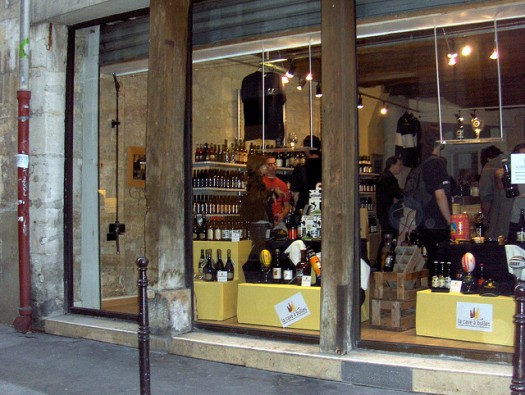La Cave à Bulles
Posted on July 17, 2010 by VINGT Editorial Words: Omid Tavallai
Words: Omid Tavallai
Image: Amy Ross
On a narrow cobblestone street in Paris’ Beaubourg district, Simon Thillou is slowly fomenting revolution. Or fermenting, rather… Mild-mannered and extremely friendly, he explains in fluent English, “Paris is not a beer place. It’s difficult for a beer lover to be in Paris for a long time. So that’s the reason I’m here.”
It’s Simon’s mission to turn Parisians on to – and supply them with – quality beer. And over the last four years (exactly four years, to the day of this writing, in fact) he has slowly but surely been fulfilling his mission. From his shop on Rue Quincampoix, he sells mostly French beers and dispenses useful knowledge and advice. But not only to beardy beer snobs.
“My customers are people who like good beers, not necessarily beer geeks. People who – once they’ve tasted good beer – don’t want to go back to crappy supermarket beer,” he says. “I also get foreign customers who visit Paris several times, and now whenever they visit, they come here. And I trade for overseas beer with them!”
Talking beer and trading bottles? Although it may sound like Simon’s simply pursuing a hobby, he’s got a sharp mind for business and the system he’s working both against and with. He laments the “pimp and prostitute” relationship between big beer companies and Parisian bars – wherein bars are beholden to beer distributors in order to have the right to sell low-quality beers at a high margin, often with huge kickbacks.
“It’s unacceptable, but that’s the way the system is,” he sighs.
Yet he acknowledges that anything the major breweries do to raise the profile of beer in France will create an eventual customer for him. “For every ten people who start to like beer, that’s one person who’ll come into my shop to try good beer.”
You can’t blame him for any cynicism. Beer is simply not respected in France on the same level as, say, wine. But beer is much more democratic, Simon argues. “Anyone can buy, at least once in his life, an exceptional beer. A truly exceptional beer would cost maybe €25-30 a bottle. But you or I could never buy what would be considered a truly exceptional wine. And most people can afford good beer, at least from time to time.” On top of that, he wants people to understand that beer, like wine has complexities, subtleties and depth that lend to its appreciation.
The bottles of beer lining the walls of the shop are organized, like French wines typically are, by region. Beers from the west of France, from the south, the east, the north… So is there a concept of terroir attached to beer?
“We French people, we like the terroir,” Simon says. “We like to say this poultry has been raised in this place, where the temperature never reaches 30º… We like this sort of thing. Whether it affects the taste or not, we want local stuff. With beer, generally only water is local. So what makes a beer is the brewer.
“Beer is like bread, in that bread has the same face as the guy who makes it. The beer looks like the brewer! Take Esquelbecq: The brewer likes very dry beer, and he’s a serious guy – thin, dry and fit – and the beers look like him. Very sharp. Or Bière de Brie: These guys are serious – they look like the kids who always sat at the front of the classroom, and their beers reflect this, with consistent results. They’re scientists. Or Fleurat, a hippie with a big beard who doesn’t look after his appearance but inside he’s a very intelligent, deep guy. And his beers are like that. They’re not the most beautiful labels, they don’t necessarily stick to the bottle very well, but once you’ve got the beer in your mouth, you think ‘Wow, that’s very complex. Very impressive.'”
Simon knows the brewers personally, which he believes is a very important part of his mission of elevating French beers. Eight years ago, he was working in a different field and traveling around France, eventually spending his summers chasing various local beers he’d never previously heard of. “I realized there was something happening in the French beer scene. And I felt I had to do something to contribute. I’m a pure Parisian, who can’t imagine living outside the Périphérique, so I thought, ‘Why can’t I get this beer in Paris? What can I do? How can I contribute to the betterment of French beer?’ Putting these beers in one place, letting them be seen, having them side by side…” This was his solution.
Having numerous French beers in the same place encourages comparison and competition among the brewers, pushing them to improve the taste and quality of their beers. “If a brewer sold only to their own region in France, there would be no competition and no reason to advance,” a situation he compared to the conservative, highly regionalised German market. “So I’m trying to push the market somewhere, on my own small level. I always talk to the brewers, asking them if they’re going to try something new, propose a new style of beer, maybe barleywine or whatever. I tell them I’m sure it will work. I’ll sell them, no problem.”
And sell he does. To encourage people to try various French beers without fear, he offers them all at the same price by volume. “That way, for people who aren’t sure what they want, they can choose whichever one they like without worrying about price.” So at €5.40 for 750ml of even the most highly-rated beer from France, it’s even a better deal than the same amount of wine. And definitely worth the price. “The difference between my beer and what you usually get at the supermarket is the same difference between what you get in a €1 plastic bottle of wine and a Grand Cru de Bourgogne.”
More and more, people are starting to understand. “People come into the shop and say, ‘I didn’t know there were so many beers in the world!’ And I tell them they’re mostly from France. ‘Oh, I didn’t know there were so many beers in France!'” Simon goes on to say how there used to be breweries all over Paris. Some even had underground facilities in the catacombs, keeping things cool naturally to spend less energy. He is a fountain of knowledge on the topic, and the history of brewing in general.
But when asked about his favorite beer, he demurs. “People always ask, and I say, ‘No, I drink them all with pleasure.’ I wouldn’t drink all of them at just any time. Some are for when you’re thirsty. Some are for winter. Some for the end of the day. Some at the end of the night…
“There’s one beer I am in love with. The first good beer I ever had. And that’s Rochefort 10. I would marry Rochefort 10. I don’t drink it every day, but Rochefort 10 is like a beautiful second woman. Since I’m already spoken for, it’s my mistress.”
Anyone looking to find their liquid mistress is welcome to the shop, where Simon will gladly dispense advice, pairings, and historical anecdotes. And while it is not a licensed bar (all purchased beer, including cold ones, must be consumed off premises) La Cave à Bulles private group tastings can be organised. Furthermore, 8 or 9 times a year the shop hosts public tastings with the brewers themselves, which provide beer lovers (or simply the curious) not only a taste of artisanal French beer, but the opportunity to chat with those at the forefront of this slow-rising beverage revolution.
On a final note, it was important to tap Simon’s knowledge with one burning question the world wants to know: Why do beer guys have beards?
“There’s a scientific explanation for this. Unfiltered, unpasteurized beer – which is what I have – contains lots of vitamins and minerals, but especially B-vitamins, which help hair and nail growth. In fact, I shaved this morning and went to a hairdresser last Tuesday. If I don’t shave for a week, I’ll have a ZZ Top beard!”
Chuckling at the dubious science, he then gave a more reasonable explanation. “Maybe it’s because we’re lazy people who don’t want to shave. You have the choice between taking five minutes to shave in the morning, or five minutes to have a beer. You choose beer. After all, beer is made from cereal, which is good for breakfast!”
La Cave à Bulles
45 rue Quincampoix, 4th
Ph: 01 40 29 03 69
Hours: Tues-Sat, 10am-2pm and 4-8pm
Metro: Rambuteau (11), Les Halles (4)

